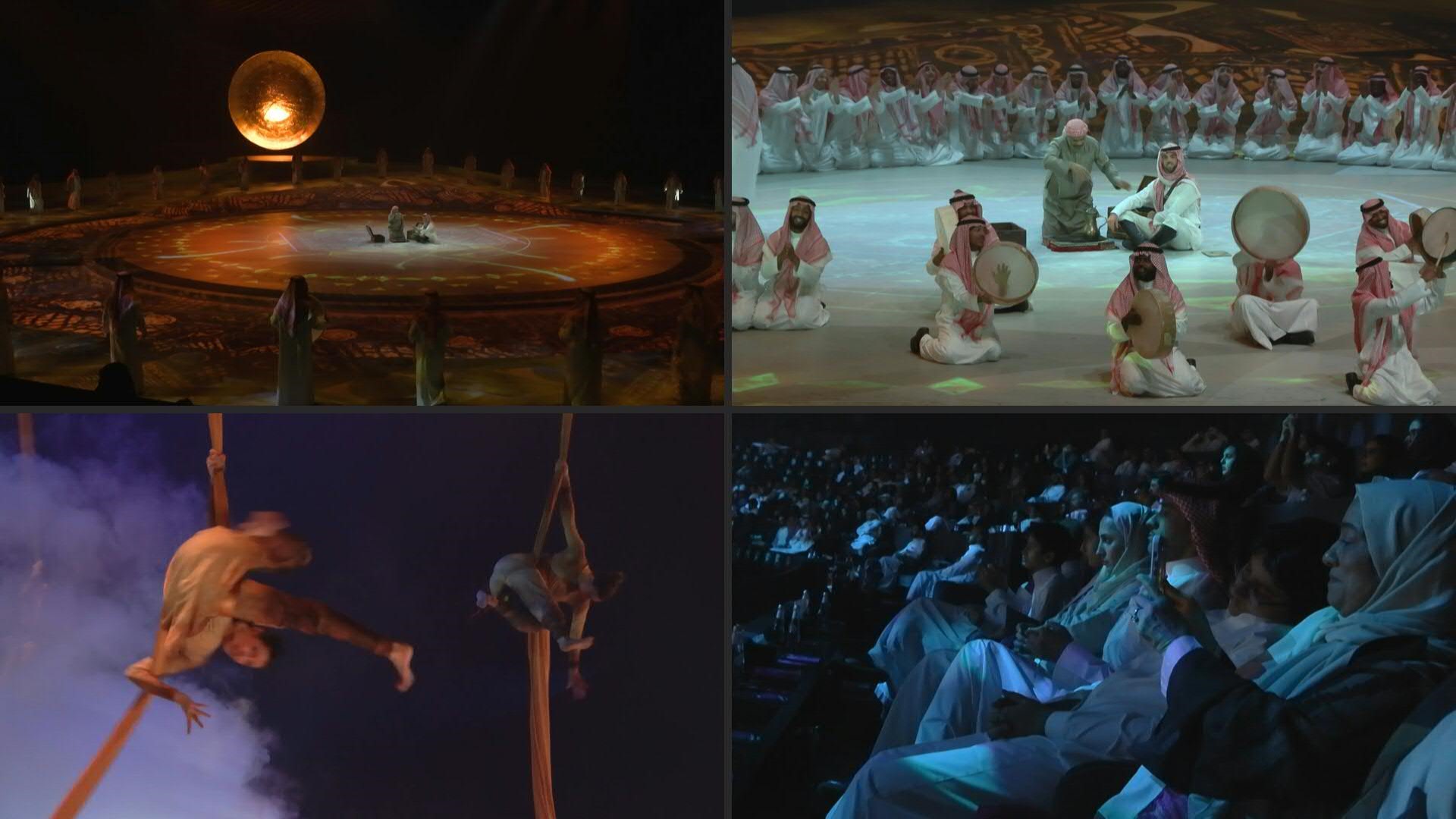Riyadh, Saudi Arabia — First, deeply religious Saudi Arabia opened its doors to Western raves and music festivals. Now it’s turning to long-neglected Saudi traditions as it seeks to draw tourists and reshape its national identity.
In “Terhal”, a lavish stage show in Riyadh, an actor in a red-and-white headdress gallops on a white horse, exploring the kingdom’s heritage and top tourist sites.
The move towards more wholesome, Saudi-inspired entertainment comes after raucous scenes at past music festivals in the capital.
Reports of alcohol and drug use — both banned in the kingdom — at the MDL Beast electronic music festival have been denied by Riyadh authorities.
This year’s Riyadh Season entertainment program, which still features MDL Beast, will be “almost entirely comprised of Saudi and Gulf musicians”, said Turki Alalshikh, chairman of the General Entertainment Authority.
“The characteristic of Vision 2030 (Saudi Arabia’s economic and social reform project) is always to test the borders,” said Sebastian Sons of German think tank CARPO.
“And if maybe two steps are too much, you take one step back.”
Terhal — Arabic for journey — blends traditional Saudi songs, chants and national dress with cutting-edge light shows and hi-tech equipment.
It tells the story of Saad, a young Saudi exploring his home country, with 55 Saudis among its troupe of 100 acrobats, trapeze artists and dancers.
‘Reframing and re-branding’
Until recently, Saudi culture was not widely championed, as authorities focused on the kingdom’s status as the birthplace of Islam and home of its holiest sites.
But it is now embracing its traditions to help shape a national identity that is less austere and no longer tied to ultra-religious conservatism.
“This reframing and re-branding of Saudi identity aligns modern arts and culture with traditional heritage and the legacy of Saudi Arabia,” said Sons.
Terhal “captures both the beauty of Saudi landscapes and the depth of its traditions, making them accessible to a broad audience”, culture ministry spokesman Abdulrahman Almotawa told AFP.
Artistic director Filippo Ferraresi said he conducted “extensive research” into Saudi culture, collaborating “with Saudi consultants, professors, and writers”.
“I discovered the different regions, their traditions, their dances, their music,” he said.
Until 2018, concerts and dancing were banned and women were forced to wear a head-covering or risk being flogged by the roving religious police.
The opening-up under Crown Prince Mohammed bin Salman, the de facto ruler, has since brought Formula One races, concerts by stars such as Jennifer Lopez, and an end to the notorious ban on women driving.
The aim is to make Saudi Arabia more attractive to tourists and international business, helping the world’s biggest oil exporter reduce its reliance on crude.
‘Untapped potential’
Entertainment was “at the nexus of the social and economic components” of Vision 2030, said Kristian Coates Ulrichsen of the Baker Institute at Rice University in the United States.
It is “seen as not only a sector of large untapped potential that can contribute to economic diversification but also as a way to showcase the changes underway in Saudi Arabia”, he said.
Human rights groups accuse the kingdom of “art-washing” to obscure its poor human rights record, including a high rate of executions.
“From a Western perspective, we often tend to dismiss such policies as mere art-washing. And of course, there is an element of instrumentalization,” said Sons.
“But there are many creative minds in the country who deserve respect for the work they do.”
For Saudi dancer Talha Mas, 23, performing in Terhal was a “dream come true” — twirling with her hair flowing freely, just a few years since head coverings were mandatory for women.
Spectator Asser Saleh, 37, said he felt “proud” to see performances of this caliber in the Saudi capital.
“Before, you had to go to Europe or the United States to see this type of show,” the Egyptian said.








